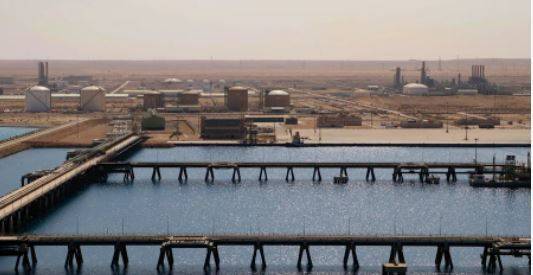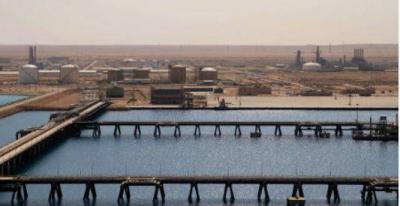Italy plans to sign its first contracts to obtain more Libyan gas, as well as gas from other countries, as part of efforts to reduce dependence on energy imports from Russia. Italian Minister of Ecological Transition, Roberto Cingolani, said at a conference that the country is in talks to finalize the first agreements within the next few weeks, expecting Rome to receive an additional 10 billion cubic meters of gas via pipelines from Algeria, Libya, and Azerbaijan this year, with that figure exceeding 20 billion cubic meters by 2024.
A portion of the gas processed by the Libyan "Mellitah" oil and gas company is exported to Italy through the Bouri oil and gas field, which began operations in 1973, with reserves of 3.5 trillion cubic feet of gas and an annual production estimated at 6 billion cubic feet of natural gas. The offshore gas field is jointly overseen by the Italian company "Eni" and the Libyan National Oil Corporation, exporting a total of 1 billion cubic feet to Italy through the "Green Stream" pipeline, which is an energy transportation line between Libya and Europe.
Libya is capable of doubling its gas export capacity, as a source from the National Oil Corporation stated that Libya can currently double its export capacity to reach 4 billion cubic feet per day, noting that only 24% of the country's production is allocated for export, while 27% is wasted in operations or burned as unusable quantities, leaving about 49% for domestic consumption.
Libya ranks as the eighth Arab country in terms of natural gas reserves and is considered a significant player for the future in gas markets due to its geographical position. It produces associated and non-associated gas through the "Sirte" and "Mellitah" companies and seeks to develop its operations in these facilities to increase production through gas compressors and other methods, supporting factories and the coastal gas network, and subsequently some power plants.
Mustafa Sanalla, Chairman of the National Oil Corporation, previously stated that Libya is currently focused on increasing gas production rates to meet the rising demand in the European market, coinciding with the Western ban on energy imports from Russia. He made this statement during a speech at the CERAWeek conference in Houston, Texas, in March, which focused on discussions about future oil and gas company models as well as the evolution of exploration and production opportunities.
Libyan energy expert Ali Al-Farsi believes that Libya's gas reserves are not sufficiently invested, due to a lack of local and foreign investments, as the country focuses on oil, in which it holds the largest reserves in Africa. Additionally, he cites security situations and fierce competition in European markets, along with the recent entry of the United States due to shale gas and several African nations preparing to export gas to Europe.
However, Al-Farsi does not overlook the exceptional efforts made by the oil sector companies in Libya over the past years to develop some wells, resulting in the success of Mellitah ports in raising production from one of the wells in the Al-Wafaa field to 100 million cubic feet daily. He also highlighted the success of the Waha Oil Company in 2019 in launching the second phase of the Al-Fargh oil field, which contributes 250 million cubic feet of gas. Al-Farsi clarified that there are ongoing efforts in the country to rely on gas to provide the necessary energy for power plants, representing a more environmentally friendly and cost-effective alternative to fuels.




